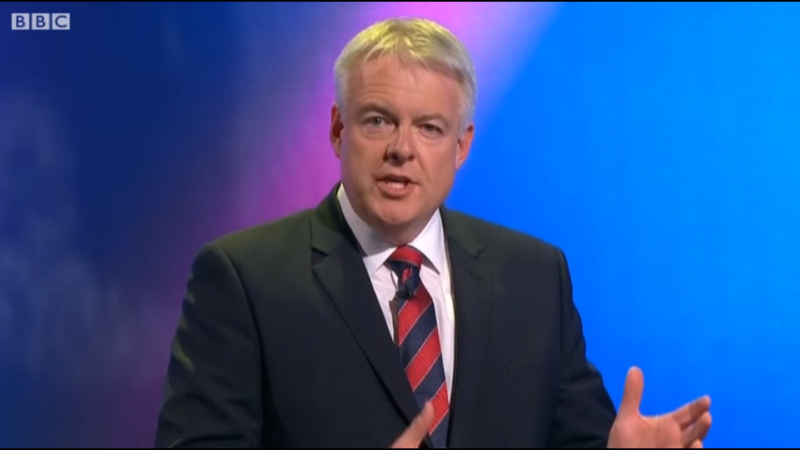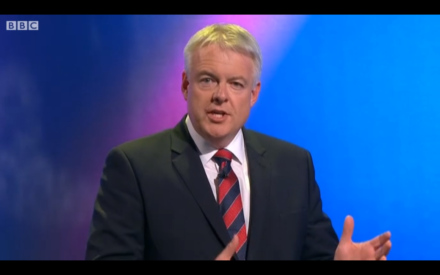

The leader’s debate underscored the scale of the challenge for Carwyn Jones. The Welsh Labour leader’s six-and-a-half years in office gave his opponents enough in his record to throw at him. But he struce a determined tone saying “The NHS is on the ballot paper” but he fell short of carrying the audience with him yesterday on the crucial issues of NHS and steel.
Jones’ point is a good one – healthcare is one of the biggest policy areas devolved to the Welsh assembly. Unlike the Scottish Parliament it cannot raise taxes. Instead it can only decide how to spend them. Jones, however, must meet the challenge of defending Labour’s spending decisions during their 17-year majority rather than outlining an idealised alternative.
The cancer drugs fund was the source of lengthy debate. The English fund was set up to give people access to treatments that would not otherwise be available on the NHS, but is not available in Wales. This has resulted in some Welsh cancer patients have said they have travelled to England to get the care they need.
The Welsh Conservatives have backed the idea, but Labour is against it, saying it is “unfair, unethical and inefficient”. The fund gives some access to drugs which are judged to be too expensive to be available to all patients, giving two tiers of healthcare – at a cost of millions.
Wood of Plaid Cymru said healthcare would be better under a single central body – attacking Labour over their desire to keep decisions in communities. A wave of data confused the audience – few of the public are medical professionals and expert knowledge is needed to assess how the NHS should be organised.
Jones is an intelligent, experienced politician and should know how to turn these attacks and the relevant statistics to his advantage. He will have spent years explaining to the public, in terms they can understand, about how funding impacts care, how the NHS’s structure impacts the treatment people receive and the balance of cost versus care. However, he somehow missed the opportunities to lay these out to the public.
When a Port Talbot resident asked about the future of Welsh steel, Jones should have tuned the situation to his advantage, yet lost ground to UKIP’s simplistic sound-bites.
Welsh Labour have by far the strongest arguments on supporting manufacturing, but Jones didn’t mention steel in his opening speech, and stumbled over his response when asked about how the country moves on from last month’s crisis.
While it was wearing to listen to UKIP’s Nathan Gill turn every question back to reasons to leave the EU, his comments were well received, even if only from a few members of the audience.
To some, using the steel crisis to make points about the EU would seem bad taste, but it appears to be tapping into the anger of a small group of the population. This is the danger to Labour – UKIP are successfully harnessing anger about the manufacturing industry to draw people into a protest vote. Labour voices must not be drowned out by misleading UKIP rhetoric, yet Jones failed to counter the Brexit narrative that draws working class votes to Gill’s party.
The mood of the room was not with Labour, but Jones is an experienced politician who has dealt with difficult situations before. He should be adept at turning tough situations to his advantage. However, we saw less of that side to him than we should have done.




More from LabourList
Government announce SEND reform in schools white paper
SPONSORED: ‘Industrial hemp and the challenge of turning Labour’s priorities into practice’
‘A day is a long time in politics, so we need ‘action this day’’